
How Switzerland is handling geopolitics in Djibouti

The Gulf of Aden is growing in strategic importance. Switzerland has real interests there, but not much in the way of political influence. It is trying to gain some by nurturing good relations – such as helping with coral reefs.
Nowhere else in the world do corals thrive as splendidly as off the coast of Djibouti, a small state in the Horn of Africa, at the southern end of the Red Sea. Here on the Gulf of Tadjoura, dark volcanic mountains rise into the air, and only the odd sailboat is to be seen on the sea. But under water, coral reefs in shimmering shapes and colours host an amazing wealth of natural life.
Two years ago this submarine world was the subject of a scientific expedition in which Switzerland took part. Researchers from several countries went diving to take samples of the unique vegetation. These samples are now being analysed at the Transnational Red Sea CenterExternal link at the Swiss Federal Institute of Technology Lausanne (EPFL).
The researchers hope DNA analyses will help them uncover the biological processese of these corals, which appear to be more resistant to the adverse effects of climate change than reefs in other parts of the world. This autumn, photos from the scientific expedition, which will continue on into 2025, were on display at an openExternal link-air exhibition in Geneva.
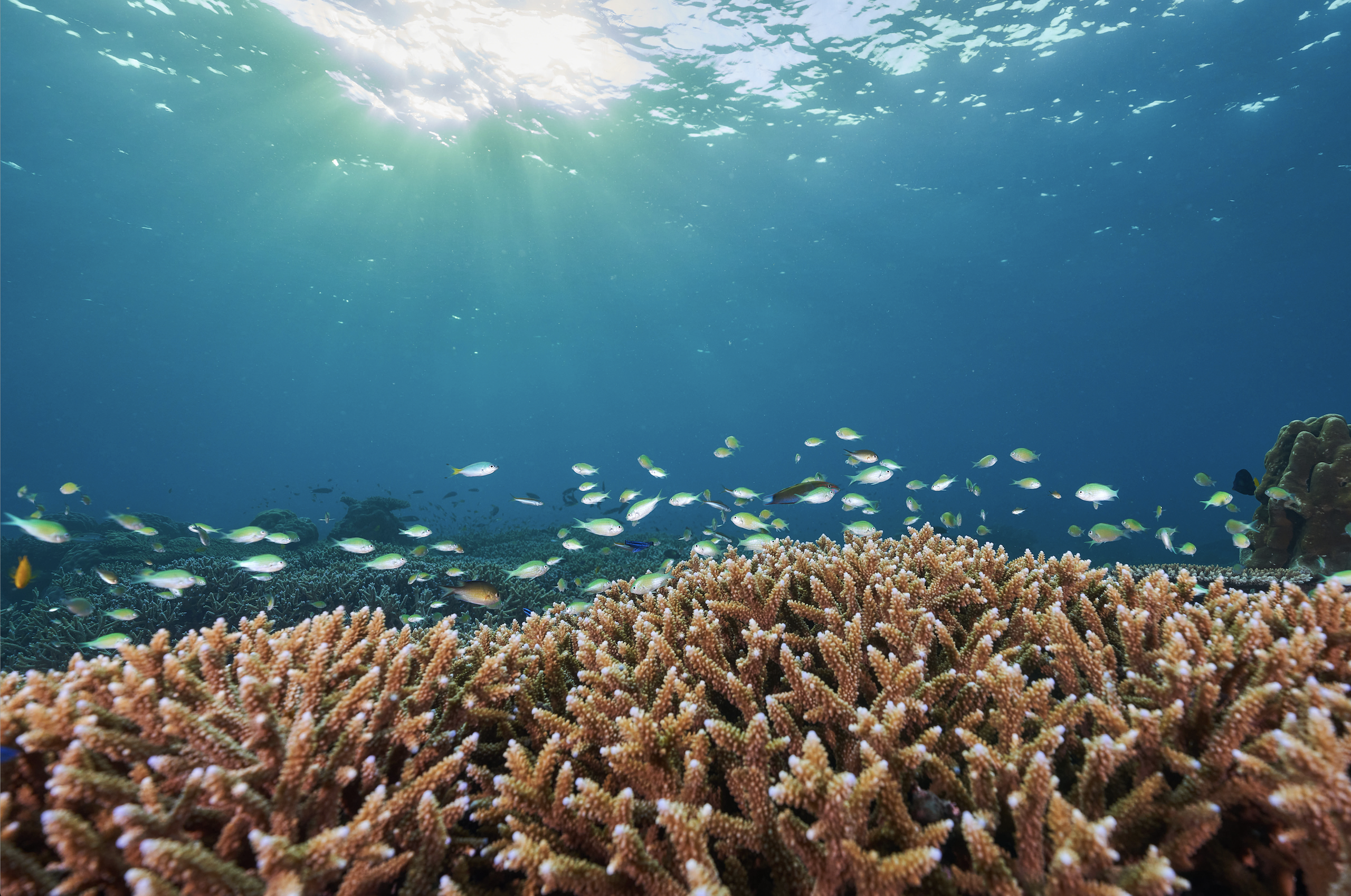
More
Diplomatic ecosystem aims to save Red Sea corals
Science with a diplomatic purpose
For Switzerland, participation in the project is not just a matter of altruism. The Transnational Red Sea Center, which was launched in 2019 and is funded by the Swiss foreign ministry, has a further dimension. It combines a well established concept of Swiss foreign policy: building bridges and establishing valuable contacts by linking science and diplomacy in a fragile political environment, as Foreign Minister Ignazio Cassis explained to SWI swissinfo.ch readers in 2019.
The Red Sea region, with its many tensions, could also play an important geopolitical role in the future beyond coral reefs, says Ali Miganeh Hadi, a researcher at the University of Djibouti. He is sitting in an international five-star hotel in the capital from where cranes looming over the port are visible.
Djibouti, which hosts the largest American military base on the African continent and bases belonging to China, France, Italy and Japan, has been successful over two decades in positioning itself as a key player in the Red Sea. “Compared to our neighbours, we are an anchor of stability in the region,” Hadi points out.
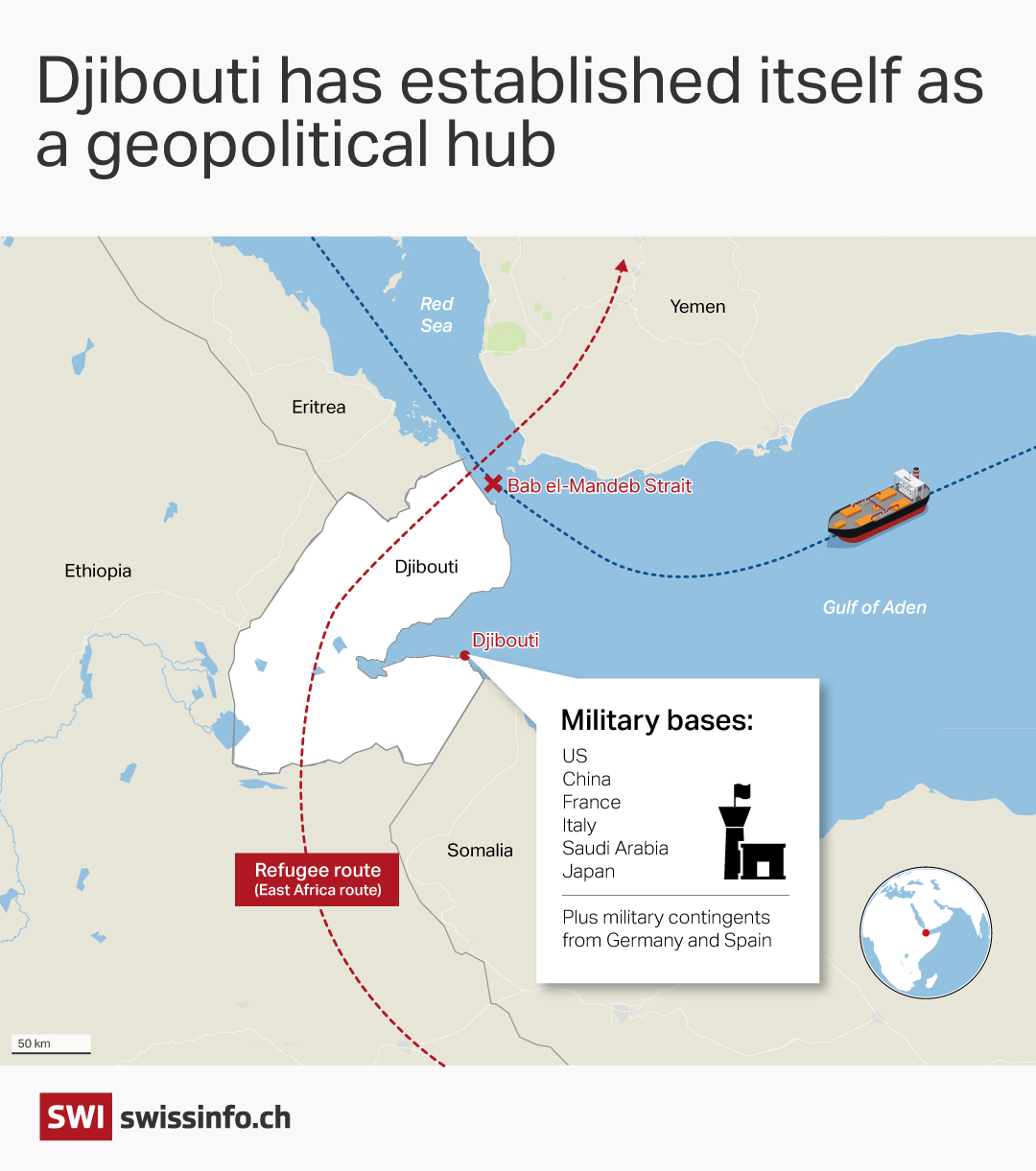
Only a few miles away, where the Red Sea’s waves meet the horizon, is the strait of Bab-el-Mandeb – one of the world’s busiest sea lanes. Between Djibouti and Eritrea on one side and Yemen on the other, it links the Red Sea with the Gulf of Aden. It is one of the most important trade routes between Europe and Asia. Nearly a quarter of the world’s shipping traffic – carrying billions of tonnes of goods – passes through this waterway every year.
But a crisis is underway. The Houthi militia, supported by Iran, controls most of northwest Yemen. Since November 2023, they have targeted international freighters with drones and rockets. These attacks are in retaliation for the war in Gaza and are intended to provide support for Hamas, the militant group banned by the European Union, the United States, and Switzerland, among others. The Houthis want to use their attacks to force an end to Israel’s military operations.
Swiss business needs the Red Sea
The Houthi attacks could become a big problem for European states, as they have provoked an economic crisis. Since the outset of the conflict in Gaza in October 2023, hundreds of cargo ships in international waters near Yemen have been hit by rockets, drones and missiles. Sailors have been killed, and many ships have been either hijacked, sunk or damaged.
This affects Switzerland too, which is an important centre for shipping lines. Last March a container ship belonging to Mediterranean Shipping Co. (MSC) – one of the world’s biggest shipping lines, with headquarters in Geneva – was targeted by Houthi forces on its journey from Singapore to Djibouti, about 90 miles south of the Yemeni city of Aden. According to US military sources, the Houthi militiamen fired two rockets, one of which hit the vessel. Incidents like this are often hushed up. Shipping lines are worried about their reputation for reliability and potential hikes in their insurance premiums.
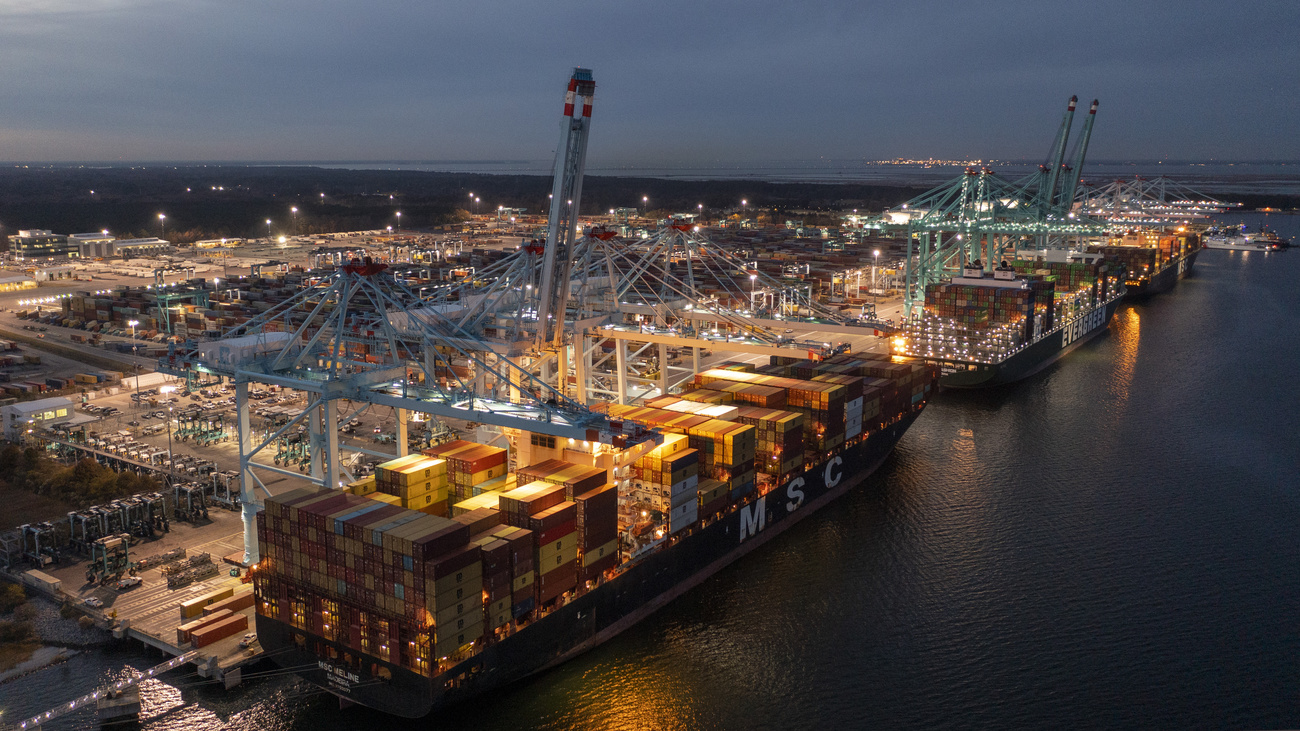
More
Mark Pieth: Switzerland must regulate its opaque shipping industry
To bypass this hazardous route from Asia to Europe, international freighters are increasingly using a longer route around the Cape of Good Hope in South Africa. This takes an extra two weeks and uses about 30% more fuel. Following the attacks on shipping, traffic through the Red Sea has decreased by almost 80% in the space of a year.
In Switzerland, both shipping lines and logistics firms are feeling the impact. Logistics is another key Swiss sector that, because of its global supply chains, is also vulnerable to international flashpoints.
Added to this complex situation is another factor. Djibouti is the central corridor for migration flowsExternal link from East Africa to the Arabian peninsula. The long-standing conflict in Yemen has not dampened these flows.
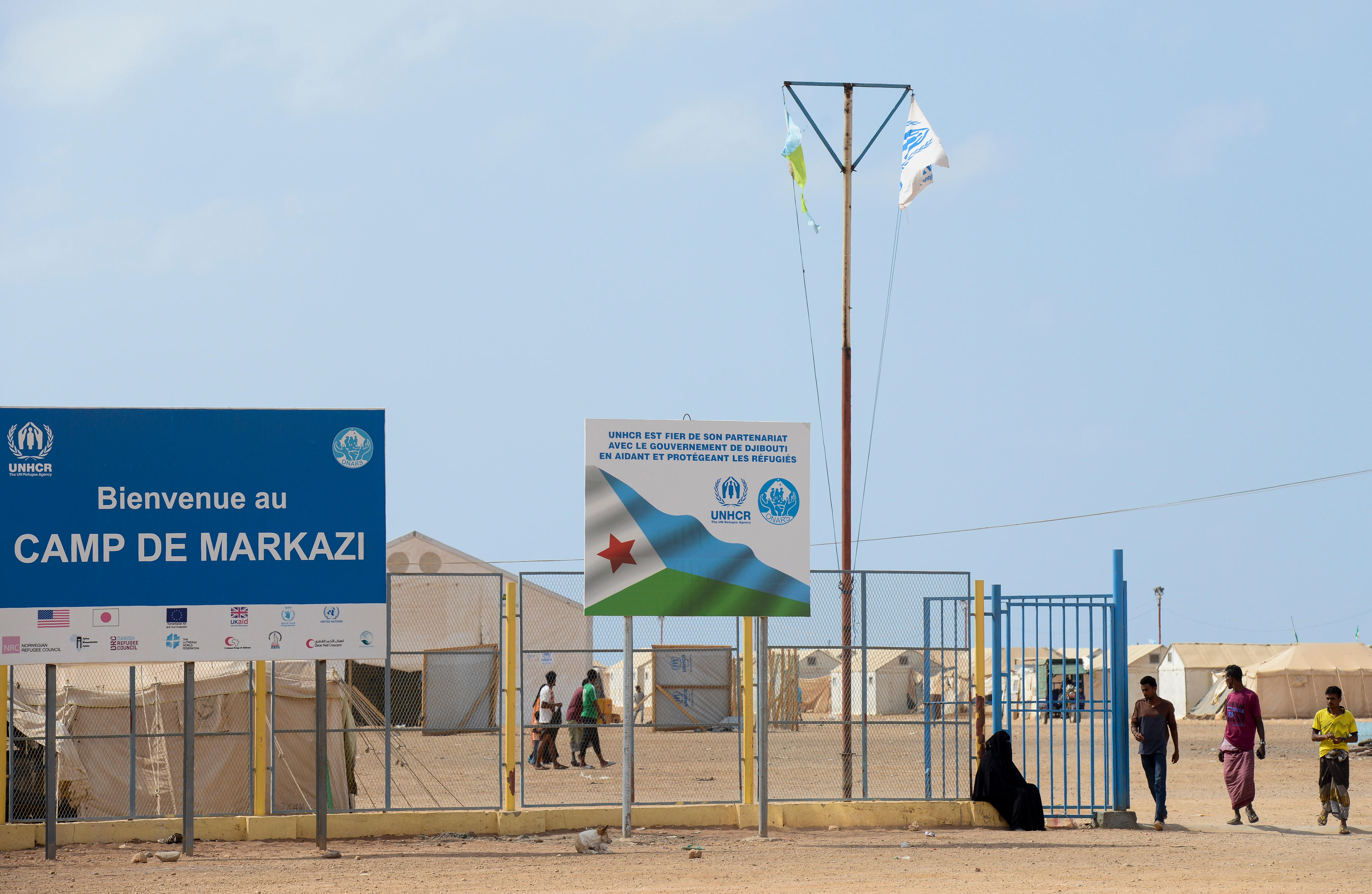
A new approach to gain influence
For East Africa expert Tobias Hagmann of Swisspeace, an independent research organisation based in Basel, it is apparent that the Horn of Africa is likely to become more of a focus for European countries – including Switzerland. The civil war in Yemen has caused a rethinking of the situation, with the region being regarded as one large economic area. The latest crisis involving the Houthis will only add to this.
“As soon as trade routes and sea lanes are endangered, alarm bells go off with those affected, which only increases concern with the political situation in the region,” Hagmann says. It’s therefore critical for Switzerland, as an export nation, to secure its own supply chains.
Up until now, Hagmann explains, Switzerland has used its humanitarian aid and development cooperation activities in the Horn of Africa to try and play a constructive role in stabilising the region. This has included contributing to multilateral and multinational funds for building up a state structure in neighbouring Somalia, where pirates have been active and pose a threat to passing cargo ships.
Given the current crisis, states like Djibouti, which is included in the Swiss foreign ministry’s Strategy for Sub-Saharan AfricaExternal link in connection with geopolitical developments in the Red Sea area, could receive more attention. The small coastal state has expressed its solidarity with the Palestinian people in Gaza, but it supports peaceful solutions and respects the sovereignty of both sides, says Hadi.
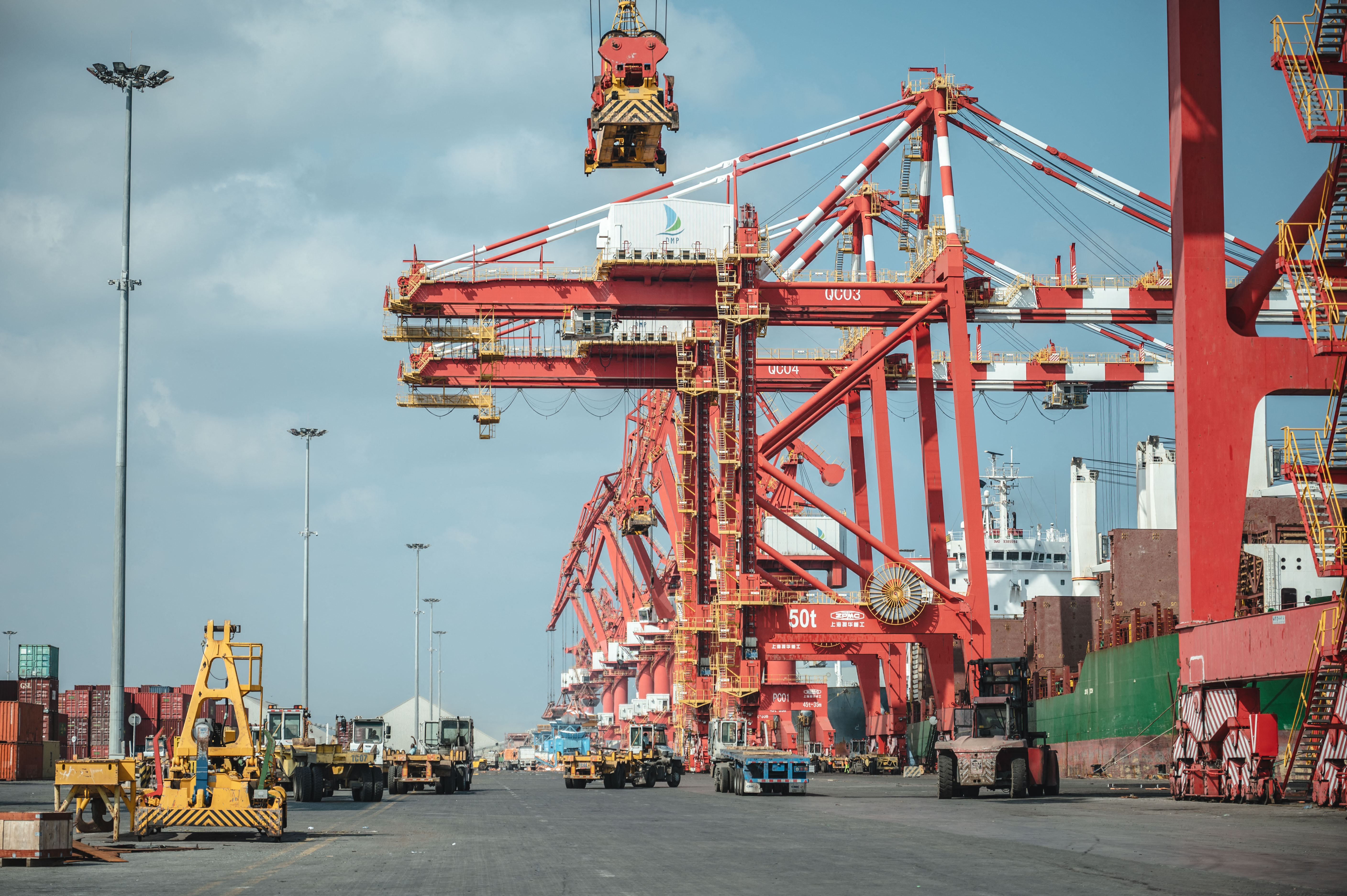
Since its neutrality prevents it from participating in any military intervention, Switzerland could find new ways to strengthen its position in the region and make Switzerland more visible through science diplomacy and the Transnational Red Sea Center, Hadi adds.
The options fur using science diplomacy to advance foreign policy interests are limited, however, says Jasmina Saric of the Swiss Tropical and Public Health Institute. The institute carries out research on Swiss science diplomacy in Africa.
“It cannot be expected of a scientific project that it is suddenly going to solve all tensions and challenges in a very complex region,” Saric points out.
Nevertheless, there are positive examples from other regions of Africa. In Kenya, Switzerland has been working successfully with the government in the areas of food security, natural-resource management and biosecurity, says Saric.
“Where long-term scientific partnerships or projects are made possible, there is often room for new common goals or bilateral cooperation in other areas,” she adds, “even if diplomatic channels have already dried up.”
Edited by Giannis Mavris. Adapted from German by Terence MacNamee/gw

More
Our weekly newsletter on geopolitics

In compliance with the JTI standards
More: SWI swissinfo.ch certified by the Journalism Trust Initiative






























You can find an overview of ongoing debates with our journalists here . Please join us!
If you want to start a conversation about a topic raised in this article or want to report factual errors, email us at english@swissinfo.ch.